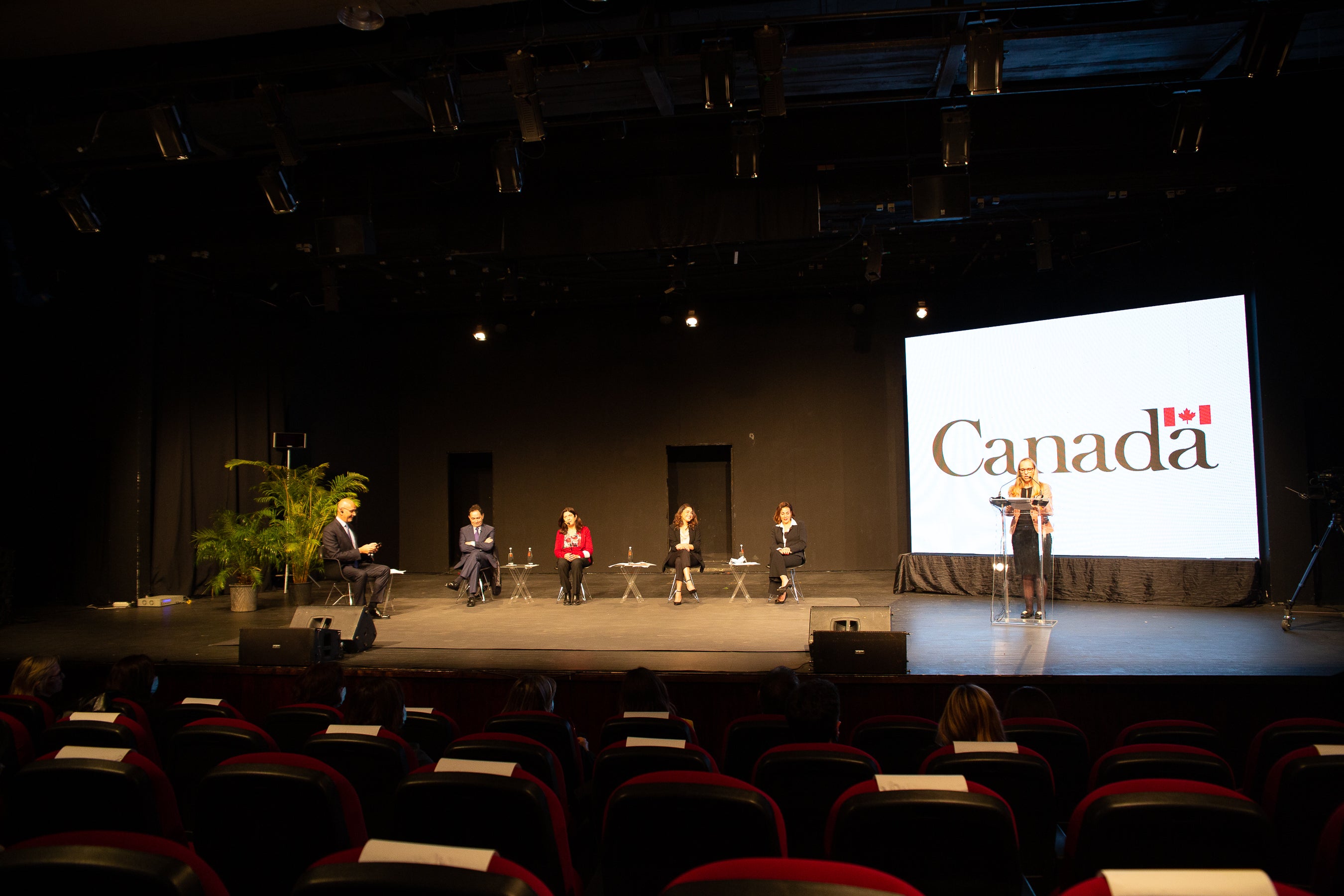The Embassy of Canada to Lebanon, UN Women and the Mafroukeh play team mark International Women's Day with a roundtable on women's personal status
Date:

Beirut (March 9, 2022)- The Embassy of Canada to Lebanon, UN Women and the Mafroukeh Play team- Lebanon does not have a single civil code. There are 15 personal status laws relevant to the 18 officially recognized confessional communities. This multiplicity of legal systems means that Lebanese citizens are treated differently when it comes to key aspects of their lives. This situation has a particularly discriminatory impact on women, who must fight for and protect their most basic rights.
To acknowledge women’s silent struggle against personal status laws in Lebanon and to mark International Women’s Day 2022, the Embassy of Canada to Lebanon, UN Women and the Mafroukeh play team organized a roundtable at Theatre Monnot, Ashrafieh.
The event gathered ministers, members of parliament, representatives from the civil society, the United Nations, and UN Member States and featured interventions focused on the perspectives of Lebanese women. The roundtable was also attended by Mrs. Claudine Aoun Roukoz, President of the National Commission for Lebanese Women (NCLW).
Chantal Chastenay, Ambassador of Canada to Lebanon, stressed that “the roundtable falls under Canada’s commitment toward gender equality, the empowerment of women and girls and the realization of their human rights under the universal 2030 Agenda for Sustainable Development”. “It is through sustained engagement and by working with our partners, that the agenda’s goals are effectively implemented” she added.
Rachel Dore-Weeks, Director of UN Women in Lebanon, noted that “Lebanon’s complex set of personal status laws codify gender inequalities and contribute to the perpetuation of social norms that concentrate the power over women’s personal decisions in the hands of religious leaders and male family members, diverting thus the State’s authority.” She added that “a unified civil personal status law has the potential to create a paradigm shift on women’s rights, but also on good governance in Lebanon”.
The discussion was based on the exploration by the theatre play Mafroukeh that tells the journey of a divorced Lebanese woman confronted with a patriarchal society with archaic traditions, gender-based limitations, as well as the difficulty to rebuild her life and face new challenges.
The conversation focused on the limits of Lebanon’s personal status and its repercussions on Lebanese women’s access to protection, equal rights, and justice. By highlighting the paralyzing effects of the confessional system on Lebanese society, the speakers called for urgent legislative reforms.
On the play that will be premiered this week, Michèle Fenianos from Mafroukeh team said “Gender equality is not a luxury good. There is no right time for activism, it’s a continuous battle. If we really want the change in mentalities, education & culture are a must especially in difficult times”.
Women in Lebanon, across all confessions, face multiple legal obstacles when ending their marriage. They face limitations of their economic rights and, in several circumstances, risk losing custody of their children.